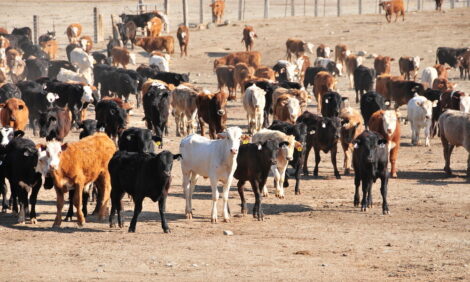



Planning an Effective Bluetongue Strategy
BRUSSELS, EU - A conference was held last week to discuss the current situation of Bluetongue disease in the EU and a relevant approach to any further outbreaks in the future.Markos Kyprianou, Commissioner for Health, announced that the Commission will make funds available to co-finance an emergency mass vaccination campaign against bluetongue in the EU in 2008.
Commissioner Kyprianou said: "I am pleased to announce that my services have agreed with those of Commissioner Fischer-Boel that Community agricultural funds will be made available to reimburse Member States' expenditure in relation to an emergency vaccination campaign in 2008.
In principle, 100% of the costs of the purchase of the vaccine and 50% of the costs of the application of the vaccine will be covered by the Community budget, subject to certain ceilings for these operational costs. Non-emergency vaccination campaigns in subsequent years would fall under the framework of the Community co-financed eradication programmes."
* "100% of the costs of the purchase of the vaccine and 50% of the costs of the application of the vaccine will be covered by the Community budget" |
|
Markos Kyprianou, Commissioner for Health
|
One of the key messages delivered at the conference was that vaccination is the most effective way of controlling and even eradicating bluetongue disease, reducing clinical signs and mortality in affected animals. It also reduces the spread of the virus and lowers the economic losses linked to outbreaks of the disease
To effectively implement this idea there will have to be a mass vaccination strategy: the aim is to reach 80% of susceptible animals vaccinated (following different presentations from countries using BT vaccination, it appears that 80% is the standard that would guarantee the full efficiency of the vaccination campaign).
Another key message was that all available vaccines should be used: Using lived or inactivated vaccines is in any case better than letting the disease spread throughout Europe. Apparently it is up to member states to decide what kind of vaccines they will be using based on scientific criteria.
Provided member states put orders for vaccines doses in time, the industry should be able to meet the european needs. The conference also decided that vaccination should take place by the summer at the latest and should be economically sustainable.
The strategy will be accessed at the end of the year. Commission officials insisted that it would be a long term strategy (3 years at least).
Further Reading
|
|
- You can visit our Bluetongue information page by clicking here. |
TheCattleSite News Desk


